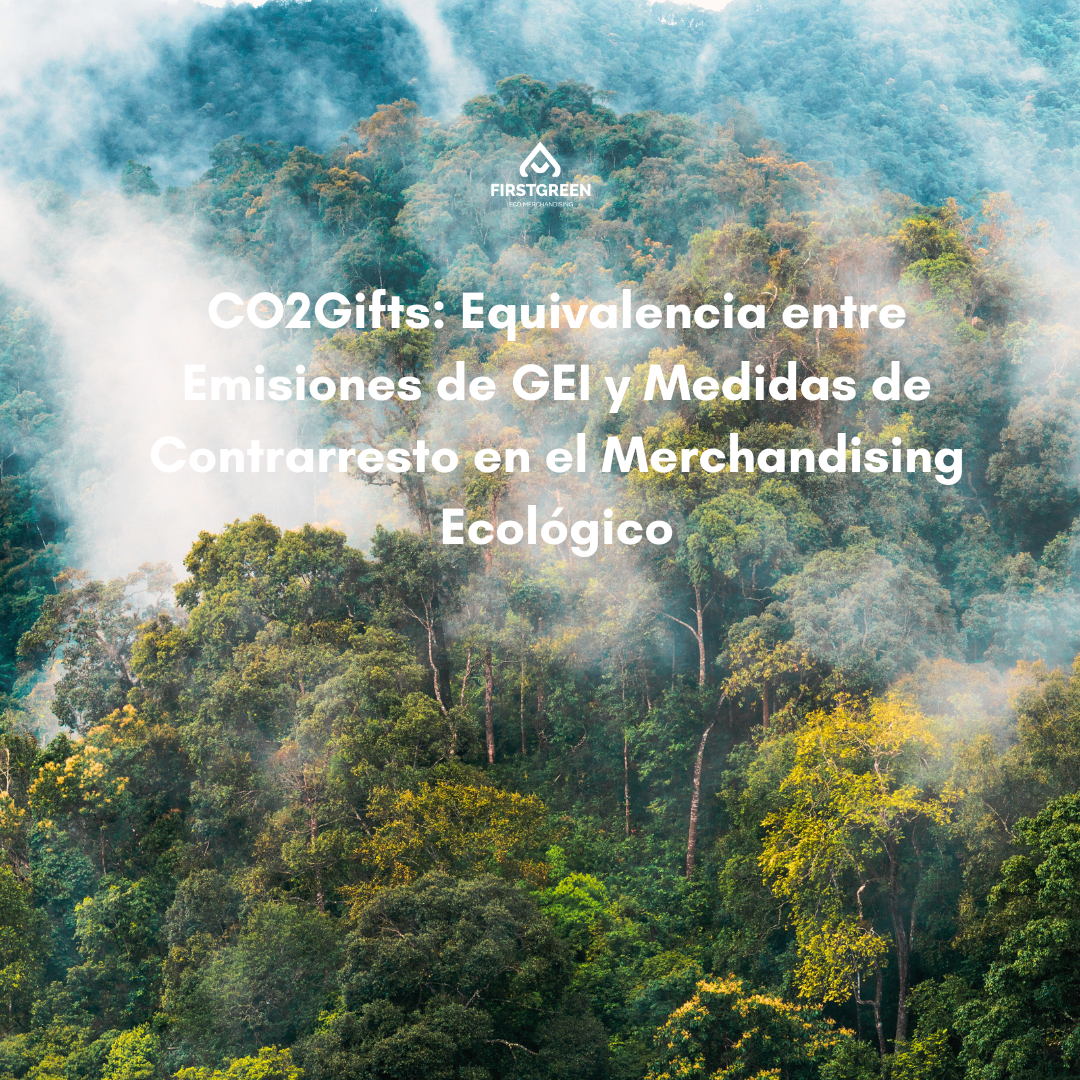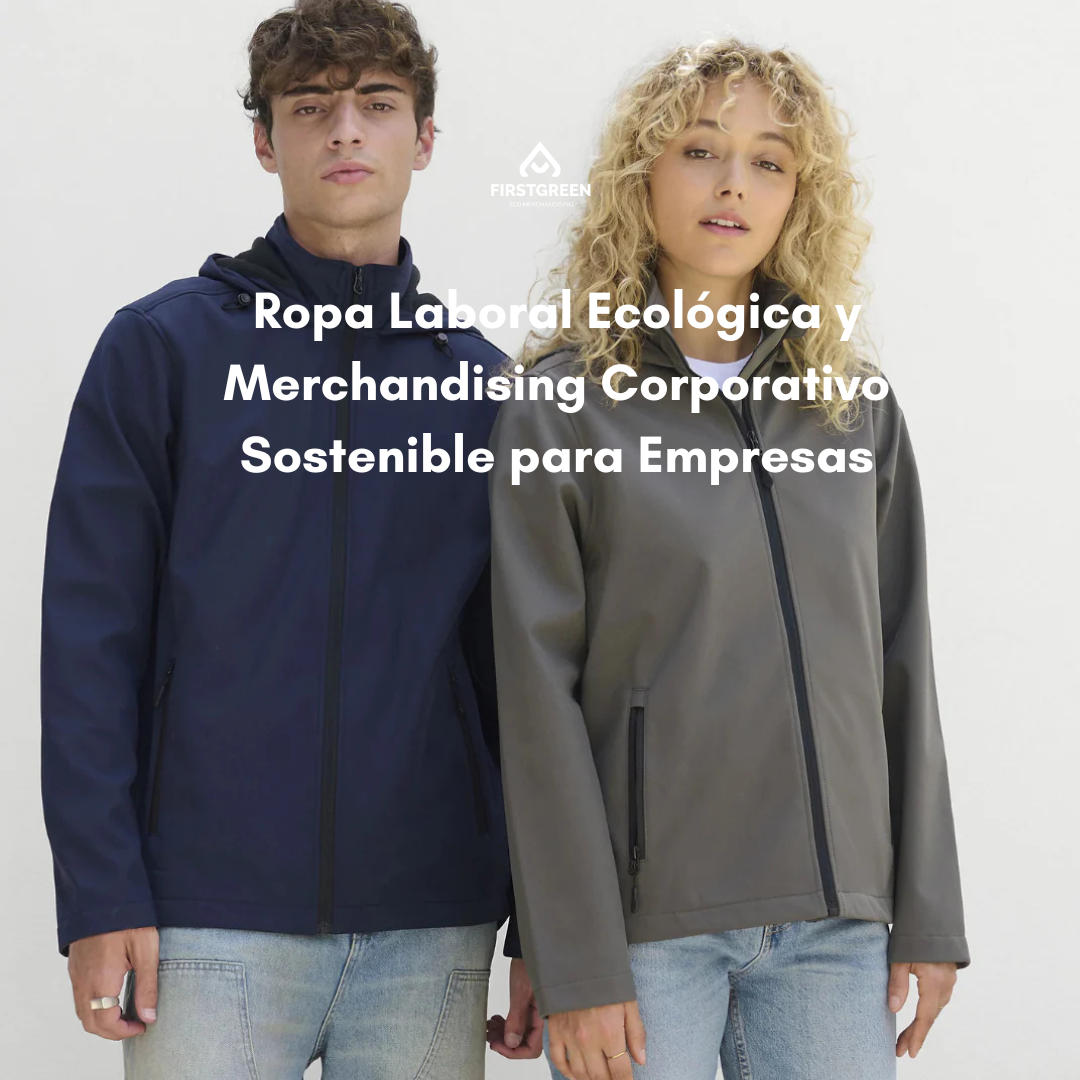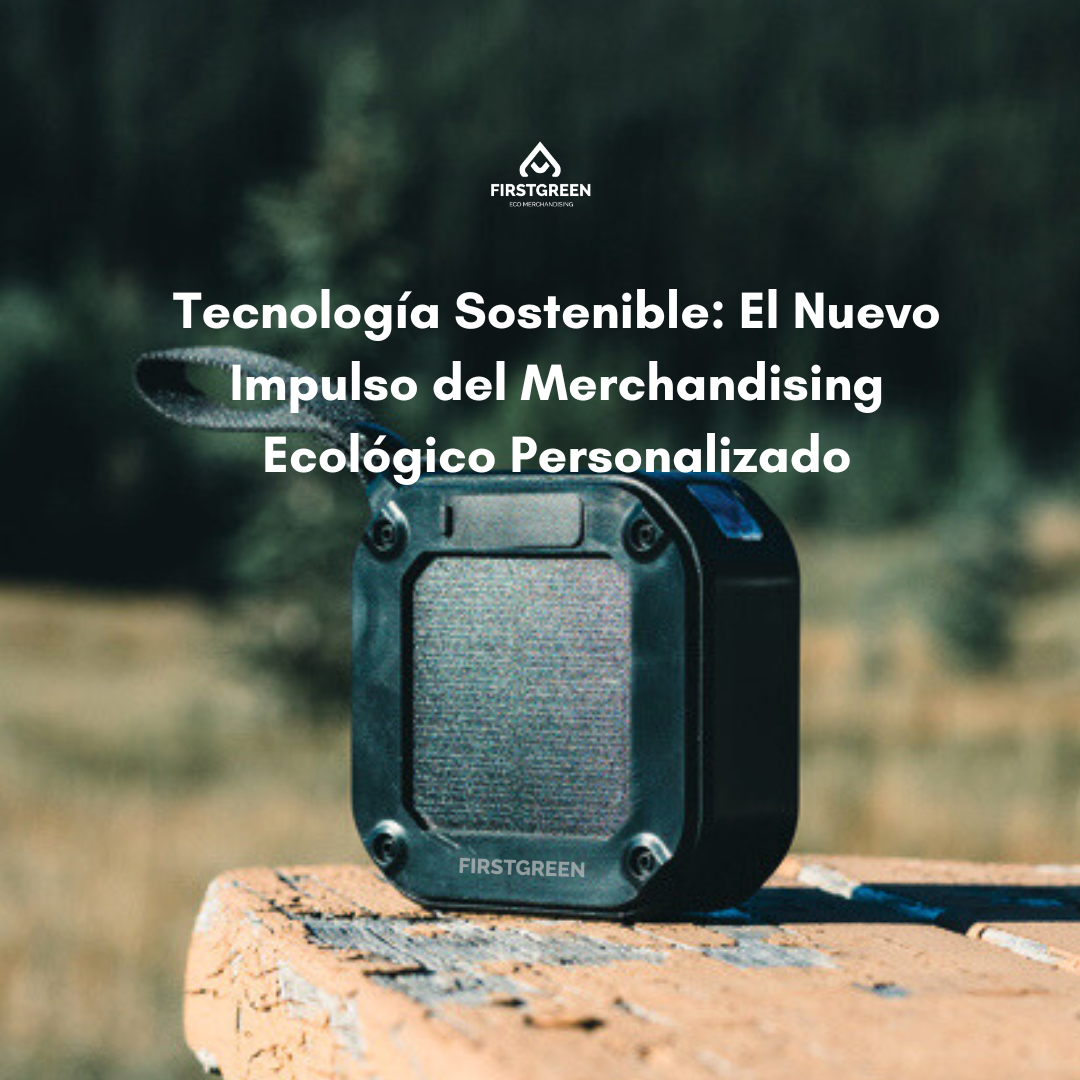Fighting a problem means first knowing about it. The fight against climate change is a long-distance race in which every action counts. At CO2Gifts and Firstgreen we are dedicated to offering eco-friendly merchandising that is not only functional and aesthetic, but also environmentally responsible. In this blog, we are going to focus on understanding the importance of calculating and exploring the equivalence between greenhouse gas (GHG) emissions produced by a product and the measures to counteract them, such as reforestation of trees, the use of renewable energy, organic crops, sustainable habits and the use of eco-friendly materials.
What is GHG Emissions Equivalence?
GHG emissions equivalency refers to the process of calculating the emissions of carbon dioxide and other greenhouse gases produced by a product throughout its life cycle and finding measures that can effectively offset these emissions to remove them from the atmosphere. This approach aims to achieve the much sought-after carbon neutrality, also called zero carbon footprint. And this is the approach that promotes sustainable and responsible merchandising.
The calculation of the carbon footprint or CO2 eq of the products is the first step. This is done through a Life Cycle Analysis (LCA) that evaluates the GHG emissions from the extraction of raw materials to the end of the product's life. At CO2Gifts and Firstsgreen, we complete these studies with the GREEN_Label rating . With these studies, we aim to obtain and offer the client a clear image of the environmental impact of each corporate item.
Benefits of Carbon Neutral Tree Reforestation
Reforestation of trees is one of the most effective ways to implement carbon footprint reduction strategies and to offset CO2 emissions. A tree can absorb between 10 and 22 kg of CO2 per year. At eco-friendly companies like CO2 Gifts & Firstgreen we work with products from responsibly managed forests that not only provide natural resources, but also act as strategies for CO2 management.
- Bamboo is the fastest growing plant on the planet, making it a highly productive natural resource, easy to grow, requires little water, captures CO2, and inhibits erosion.
- Hemp is another eco-friendly material that is making waves in environmentally friendly merchandising. It comes from a fast-growing plant that does not require pesticides or fertilizers to grow, making it one of the materials (like organic cotton and bamboo) that have healthy benefits for humans and the planet.
- Wood is the raw material with the lowest environmental impact, coming from well-managed forests, both economically, environmentally and socially, in which massive logging is not required. It is renewable because it is an organic resource, ecological given the fixation of CO2, it is recyclable after its initial period of use and biodegradable at the end of its life, fertilizing and composting the soil.
Ecological Notebook or Sustainable Notebook with FSC® Certified Hardwood Cover with Metallic Edges for Customization, Smooth Sheets and GREEN_Label rating l A Treeline- A5
Energy Efficiency through Renewable Energy
The transition to renewable energy is crucial to reducing emissions. By using solar or wind energy for the eco-friendly manufacturing and personalization of solar- powered tech business gifts , we significantly reduce our carbon footprint. For every kWh of renewable energy used, up to 0.5 kg of CO2 emissions can be avoided.
Solar energy is a non-polluting energy that does not generate waste or emit greenhouse gases, and it also comes from an inexhaustible resource like the sun.
Eco-friendly Solar PowerBank from Recycled ABS with RCS Certificate for Customization and GREEN_Label A Special Outdoor Skywave 10000 mah
Sustainable Crops to Reduce Carbon Footprint and Improve Soil
Regenerative and sustainable agriculture increases the soil's capacity to capture carbon. Using green merchandising from sustainable crops, as well as obtaining quality personalized promotional products (such as work clothes for companies, reusable bags, or promotional t-shirts to personalize), contributes to reducing emissions and improving soil health and biodiversity.
Organic cotton is a biodegradable natural resource that optimizes resources from cultivation to land rotation and crop diversification. Throughout the process, it achieves a 46% reduction in greenhouse gas emissions, a 26% reduction in waste accumulation, a 91% reduction in irrigation water and a 62% reduction in primary energy consumption compared to conventional cotton.
Low Carbon Unisex Hoodie with Eco-Friendly Hood made from 50% Recycled Cotton and 50% Organic Cotton for Customization with AWARE™ Tracer and GREEN_Label A rating Iqonic Yoho 340 GSM
Sustainable Living Habits to Achieve Sustainable Carbon
Promoting sustainable lifestyle habits is crucial for the planet. By opting for reusable and long-lasting products from reusable and biodegradable merchandising, reducing the need for frequent purchases and decreasing associated emissions, staff and customers are educated about the importance of recycling and waste reduction, creating an ecological visual impact that is further increased by sustainable advertising of eco-friendly products such as seed merchandising for the differentiation of brands, logos and environmentally friendly companies.
Benefits of Using Ecological Materials for Carbon Neutrality
We cannot forget the need to use recycled and biodegradable materials to effectively reduce emissions. Ecological materials usually require less energy, chemicals and generate less waste, and therefore a smaller carbon footprint. Likewise, low-carbon promotional products or merchandising with a green label use eco-friendly printing, water-based paints, laser personalization, embroidery and renewable energy in their execution.
Integrating Eco-Merchandising in Carbon Footprint Reduction
Firstgreen is exclusively dedicated to #EcoFriendlyMerchandising and to this end all these measures are reflected in the products in its catalogues. Through;
Carbon Labelling: In the CO2Gifts catalogue you will find information on the carbon footprint of low carbon footprint products and the offsetting actions taken, as you can see in the Impact collection, a line of products in which traceability and sustainability come together to influence the proper use of water. These eco-friendly corporate gifts dedicate 2% of the profits to the NGO Water.org.
Recycling and Sustainability Certifications: They are the guarantee of products that meet high sustainability standards through recognized certifications such as GRS, RCS, OEKO-TEX, FAIRTRADE, AMFORI, BSCI, ACCORD, GREENGUARD GOLD, GOTS, FSC,
At CO2Gifts and Firstgreen, we are committed to protecting the environment by integrating all measures within our reach. We support all measures to achieve Carbon Neutrality that offset greenhouse gas emissions. By establishing equivalence and GREEN_Label qualification between emissions and offsetting measures, we offer our customers the opportunity to make a conscious and sustainable choice. Together, we can make a difference and move towards a greener future.






